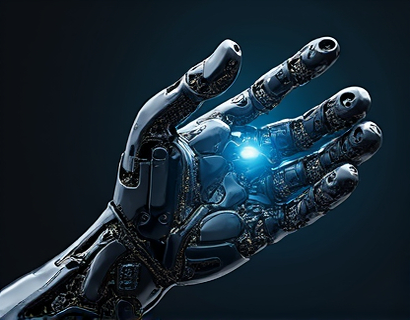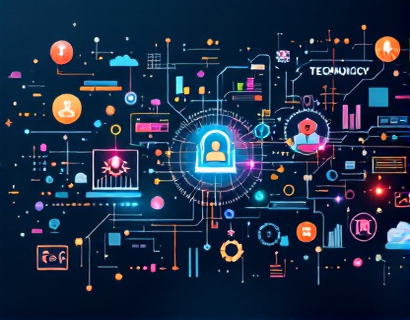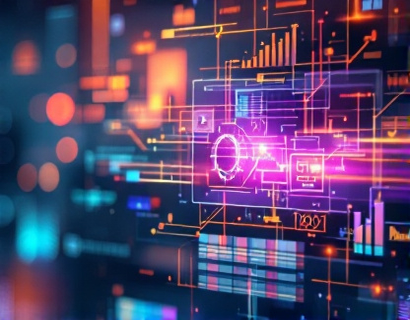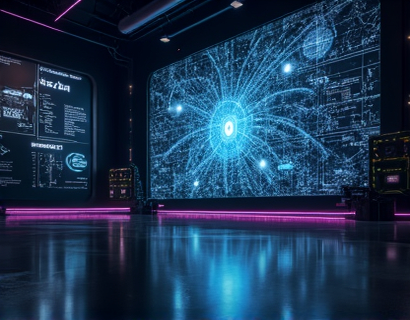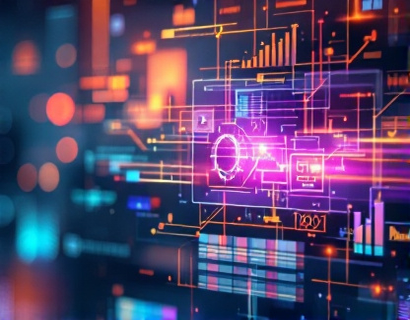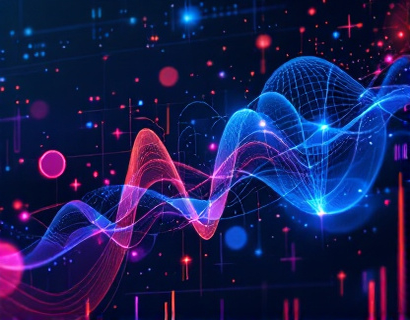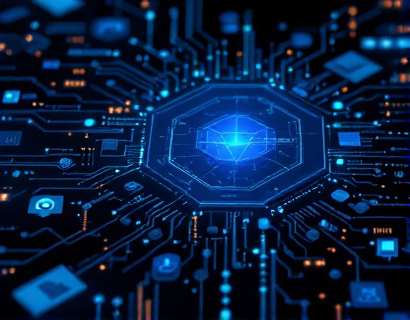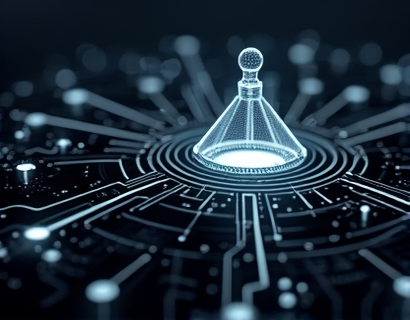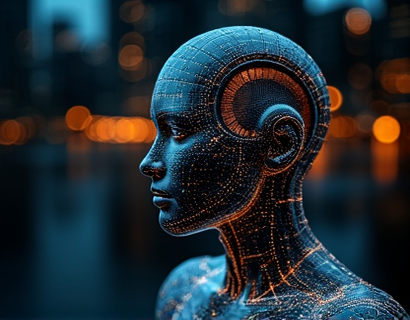Crypto AI Dynamics: Transforming Digital Experiences with Next-Gen Solutions
The intersection of cryptocurrency and artificial intelligence (AI) is giving birth to a new era of digital transformation. This fusion is not just about combining two cutting-edge technologies; it's about redefining how we interact with digital apps and services. The latest advancements in crypto and AI are creating more intuitive, secure, and personalized digital experiences. This article explores the forefront of this revolution, offering insights into how these technologies are reshaping the digital landscape.
Understanding the Basics: Cryptocurrency and AI
To grasp the dynamics of crypto AI, it's essential to understand the fundamentals of both cryptocurrency and AI. Cryptocurrency, often referred to as digital or virtual currency, uses cryptography for security and operates on a decentralized network, typically a blockchain. This technology ensures transparency, security, and reduces the need for intermediaries like banks.
Artificial Intelligence, on the other hand, involves the simulation of human intelligence in machines that are programmed to think and learn like humans. AI encompasses various techniques, including machine learning, natural language processing, and computer vision, enabling machines to perform tasks that traditionally required human intervention.
The Synergy of Crypto and AI
The combination of cryptocurrency and AI creates a powerful synergy that enhances the functionality and security of digital services. One of the primary areas where this synergy is evident is in the development of decentralized applications (dApps). These applications leverage blockchain technology for data storage and AI for intelligent decision-making, offering users a seamless and secure experience.
Another significant area is in the realm of smart contracts. Smart contracts are self-executing contracts with the terms directly written into code. When combined with AI, these contracts can adapt and optimize their execution based on real-time data and predictive analytics, making them more efficient and reliable.
Enhancing Security Through Crypto AI
Security is a paramount concern in the digital world, and the integration of AI in cryptocurrency solutions is significantly bolstering security measures. AI algorithms can detect and respond to anomalies in real-time, identifying potential threats before they materialize. This proactive approach to security is crucial in a landscape where cyber threats are becoming increasingly sophisticated.
Moreover, AI can enhance the privacy of users by implementing advanced encryption methods and zero-knowledge proofs. These techniques ensure that transactions remain confidential while still being verified on the blockchain, striking a balance between transparency and privacy.
Personalization in Digital Services
One of the most exciting aspects of crypto AI is its ability to personalize digital experiences. AI algorithms can analyze user behavior and preferences, providing tailored recommendations and services. In the context of cryptocurrency, this means that users can receive customized financial advice, investment strategies, and even personalized digital assets.
For instance, AI-driven platforms can analyze market trends and suggest optimal times for buying or selling cryptocurrencies, taking into account a user's risk tolerance and investment goals. This level of personalization not only enhances user satisfaction but also increases the efficiency of digital services.
Decentralized Finance (DeFi) and AI
Decentralized Finance (DeFi) is a rapidly growing sector that leverages blockchain technology to create financial systems without traditional intermediaries. AI plays a crucial role in DeFi by enabling more sophisticated and automated financial services. AI algorithms can manage risk, optimize portfolios, and even predict market movements, providing users with tools to make informed financial decisions.
Furthermore, AI can help in reducing fraud and enhancing compliance in DeFi platforms. By analyzing transaction patterns and identifying suspicious activities, AI can help maintain the integrity of the financial ecosystem. This combination of DeFi and AI is paving the way for a more accessible and efficient financial system.
User Experience and Interface Innovations
The integration of AI in cryptocurrency applications is also revolutionizing user interfaces. AI-driven design tools can create intuitive and user-friendly interfaces that adapt to individual preferences. For example, AI can analyze how users interact with an app and make real-time adjustments to improve usability and accessibility.
Additionally, natural language processing (NLP) enables users to interact with digital services using voice commands or natural language queries. This not only makes the user experience more seamless but also opens up new possibilities for individuals who may not be tech-savvy.
Challenges and Considerations
While the potential of crypto AI is vast, there are several challenges and considerations that need to be addressed. One of the primary concerns is the regulatory landscape. As crypto AI solutions become more prevalent, regulators are beginning to take notice, and compliance with varying regulations across different jurisdictions can be complex.
Another challenge is the technical complexity involved in integrating AI with blockchain technology. Developing robust and scalable solutions requires significant expertise and resources. Moreover, ensuring the ethical use of AI, particularly in terms of data privacy and bias, is crucial to maintaining user trust.
Future Prospects: The Road Ahead
The future of crypto AI is promising, with numerous potential applications and innovations on the horizon. One area of interest is the development of AI-powered virtual assistants specifically designed for the crypto space. These assistants could provide real-time market updates, manage wallets, and offer personalized investment advice, all through natural language interactions.
Another exciting prospect is the integration of AI with Internet of Things (IoT) devices in the crypto ecosystem. This could lead to more interconnected and automated financial systems, where devices can automatically execute transactions based on predefined conditions.
Furthermore, the convergence of blockchain, AI, and quantum computing holds the potential to solve some of the most complex computational problems, opening up new frontiers in cryptography and secure data processing.
Conclusion
The fusion of cryptocurrency and AI is transforming digital experiences in ways we are only beginning to understand. By enhancing security, personalization, and efficiency, these technologies are paving the way for a more intuitive and robust digital landscape. As the field continues to evolve, it's essential for tech enthusiasts and professionals to stay informed and embrace the innovations that crypto AI brings to the table.








